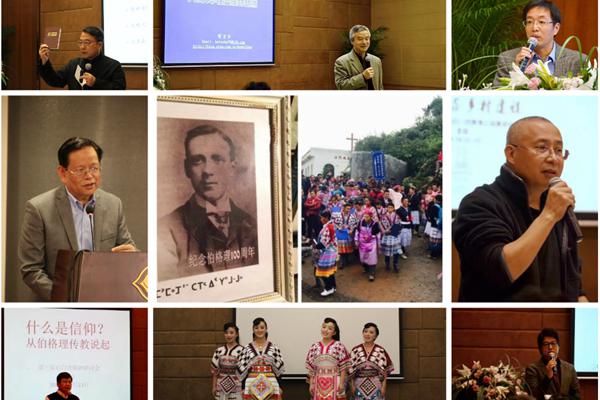The third Samuel Pollard Thoughts Seminar was held in Beijing on Oct 22 and 23 themed with Shimenkan and rural construction.
The first session of the seminar was held under the theme of carrying forward Samuel Pollard Thoughts. The theme of the second session was the education thoughts of Samuel Pollard.
The third Samuel Pollard Thoughts Seminar was hosted by Shenzhen Pollard Shimenkan Education Public Foundation, inviting more than 30 specialists and experts of different fields such as public welfare institutions and rural construction.
On the morning of Oct 22, the specialists and experts had a broad discussion of the spirits of Samuel Pollard and the case of Shimenkan in terms of the meaning of rural construction.
Superintendents from several public welfare institutions shared their experience related to the development of agricultural products, economy, education and the environment in rural areas.
On Oct 23, topics such as the spirit of Platon's idealism and rural construction were freely discussed at the seminar.
Different speeches of the experts
The counselor of Shimenkan Fund, Prof. Chen Haowu expressed his gratitude to the experts at the seminar. He said that the situation of Shimenkan had aroused more people's attention. He added that Shimenkan and Samuel Pollard deserve a higher position in history.
According to Chen, rural construction is a profound and sharp-pointed topic in China. Rural areas are faced with many crises and challenges, including water pollution and talent drain. Spiritual desolation is the biggest problem.
Samuel Pollard built the savage and wild Shimenkan into a place of higher-level civilization within 10 years. We should follow his example and promote the rural construction, especially in terms of civilization and belief.
Su Xiaohe, a financial commentator, said that Samuel Pollard is a symbol of service. He lived with the farmers in Shimenkan and died there. He was even abused by some local people after his death.
His experience was similar to that of Jesus. Jesus was born in the manger and served people in the world. However, people nailed him to the cross and abused him.
Liu Junning from the Institute of Chinese Culture said that what impressed him most was the humility of Samuel Pollard. He was equal to everyone. He had no sense of superiority in belief and identity, which is worth learning from.
He Weifang, a law professor at Peking University, said that missionaries made great contributions to the higher education in modern China. Meanwhile, he said with regret and pity: "We have played down the gospel."
According to Liu Peng, head of Pu Shi Institute, the core of Samuel Pollard's spirits is to change the world with belief. He said that the material civilization should be based on morality while the origin of morality is belief.
Liu said that Samuel constructed the Miao village with belief instead of money or power. Education, medical treatment, science, and technology will be the origin of sin and crimes without belief.
Yang Peng, a visiting scholar at Harvard University Asia Center, said that Samuel Pollard believed the hand of God could remove the darkness in people's heart and light the life of everyone. He knows that the creation of life, the dignity, and happiness of the people are from God.
Samuel believed people from the Miao ethnic group and England were both the children of God. Belief can change their life by arousing their power of love, creation, and service.
The theory and practice of rural Christian church construction in China
Liu Jiafeng, a professor from Shandong University, made a speech Theory and Practice of Rural Christian Church Construction in China. He studies the relationship between Christianity and the modern history of China.
Professor Liu said that the rural construction conducted by Christian churches in China is a response to the crisis in rural areas during the 1920's and 1930's. At that time, a global rural construction campaign started by Christianity has a profound influence on the development of Christianity in China.
Professor Liu said that the rural construction conducted by Christianity has made great contributions to the development of high education, agriculture and security in China's rural areas.
However, these contributions were not the ultimate goal of the rural construction. The Christian church was aimed at building a Christian rural society in China.
Rural construction was a new practice of evangelism, which was not accepted by the conservative Evangelical Theology. Evangelical Theology is against any kind of social reforms, believing that the only mission of the church is preaching the gospel.
It is impossible to build the heaven in the secular world according to Evangelical Theology. Christians who believe in Evangelical Theology only seek spiritual happiness and external life. They had no interest in reforming the real society, which will have a bad influence on preaching the gospel.
Professor Liu said that the disputes between the party of the Social Gospel and that of Evangelical Theology have a long history. China was in a desperate situation in the modern times. A group of Christians tried to follow the example of Jesus and explore the measures to rebuild rural areas.
Their behavior was worth praising. They have put the gospel and belief into practice. However, there is a large gap between the ideas and the reality. It is difficult to combine the heaven with the world. The situation of Christians who conducted rural construction in China was awkward, Liu said.











